- Home
- slideshows
- miscellaneous
- China is building a vast civilian surveillance network - here are 10 ways it could be feeding its creepy 'social credit system'
China is building a vast civilian surveillance network - here are 10 ways it could be feeding its creepy 'social credit system'
1. Using facial recognition technology that can pick people out of massive crowds.

2. Getting group chat admins to spy on people.
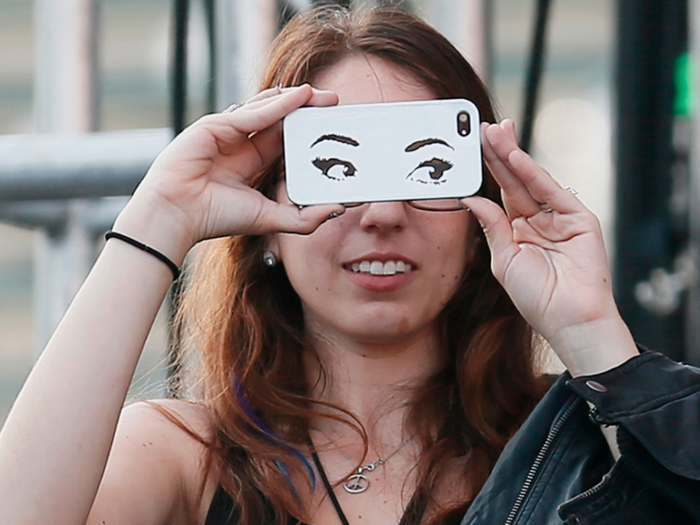
China holds people criminally liable for content posted in any group chat they initiate on messaging apps. The regulation applies even to private and encrypted apps, such as WhatsApp.
The government also requires tech companies to monitor and keep records of conversations for six months, and report any illegal activity to authorities.
3. Forcing citizens to download apps that allow the government to monitor their cell phone photos and videos.
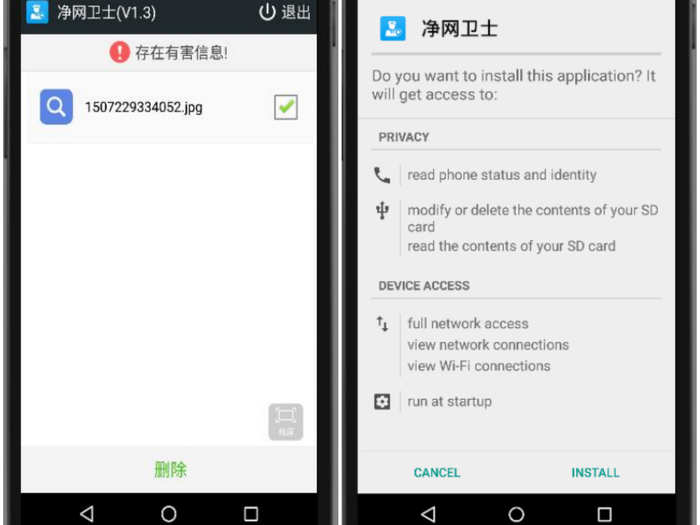
The government has forced Uighurs, an ethnic minority in western China, to download an app that scans photos, videos, audio files, ebooks, and other documents, the US-government funded Open Technology Fund said.
The app, named 浄网 (pronounced "jingwang" in Mandarin Chinese, and literally means "cleansing the web"), extracts information including the phone number and model, and scours through its files, the Open Technology Fund reported.
It also warns users to delete files it deems dangerous and sends information about those files to an outside server.
4. Watching how people shop online.
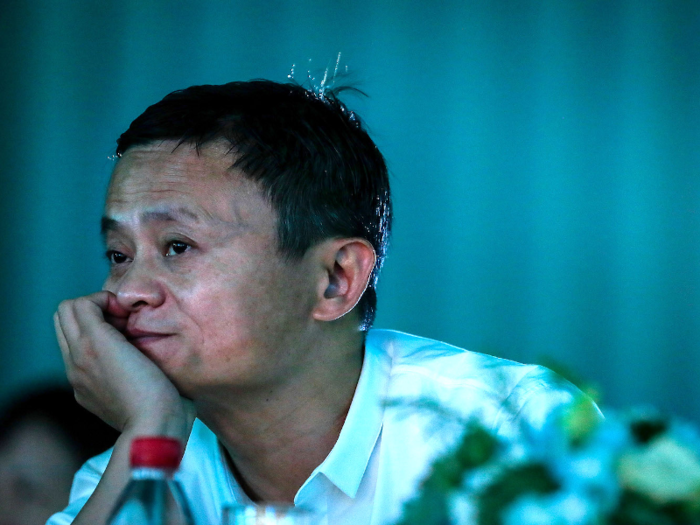
Alibaba previously said that its optional credit system, Zhima (Sesame) Credit, ranked its users based on their online activities.
Zhima Credit's technology officer, Li Yingyun, told author Rachel Botsman last year that people who played video games for ten hours a day would be considered an "idle person," while those who buy diapers online were "more likely to have a sense of responsibility," as they were likely to be parents.
Although Zhima Credit has since said that it no longer tries to quantify users' online behaviour, the company has already given a glimpse of the massive amount of data it mines from its users.
Chinese tech companies, including Alibaba, are required to share data with the government upon request, according to The Wall Street Journal.
5. Having law enforcement officers wear special glasses to identify people in crowded places, like streets and train stations.
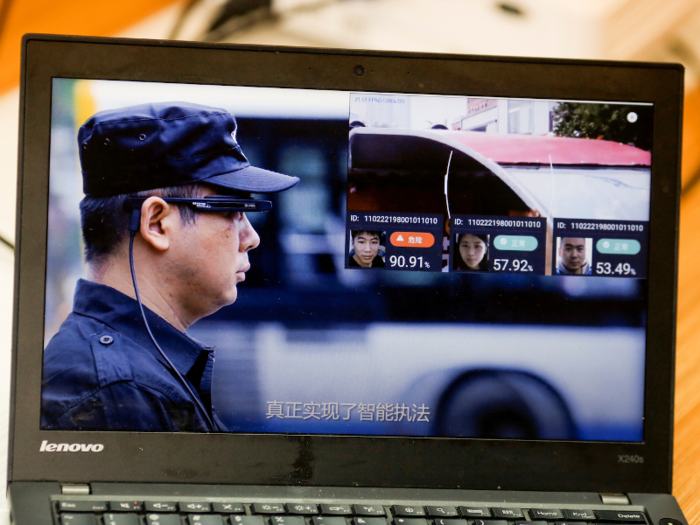
The facial recognition glasses, which were unveiled earlier this year, are linked to a database that can match people with criminal suspects.
Wu Fei, the CEO of LLVision Technology which developed the glasses, told the Wall Street Journal that his technology can identify faces from a database of 10,000 in 0.1 seconds.
The glasses have already helped authorities identify people suspected of misdeeds ranging from traffic infringements to crimes like human trafficking, Wu told the Journal.
6. Installing 'robot police' in train stations that scan people's faces and match those of wanted fugitives — like this one in Zhengzhou, central China.
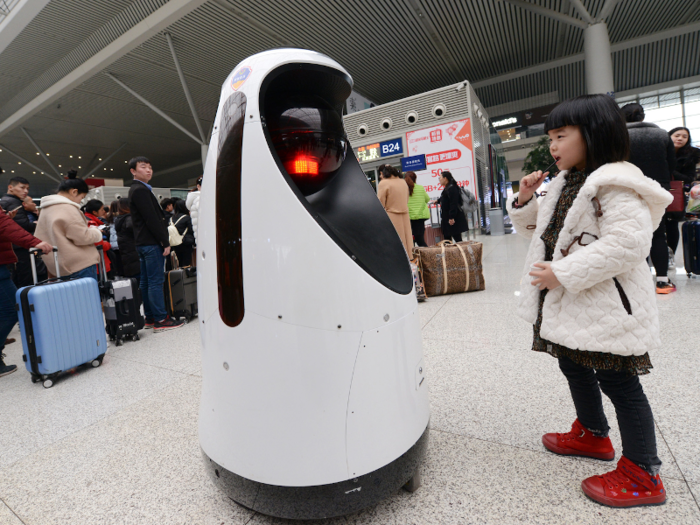
7. Using facial recognition technology to root out jaywalkers.

Several Chinese cities have already installed facial recognition cameras around their streets that immediately match jaywalkers' faces to a central police database, according to the state-run Xinhua news agency.
The jaywalkers' photos, surnames, and redacted ID numbers are displayed on a massive screen next to the road.
In cities like Shenzhen, southeastern China, the information is also uploaded to official social media accounts and websites (see how it works in the video above).
In Fuzhou, southwestern China, police even tell jaywalkers' employers about their "misdeeds."
Intellifusion, the Chinese AI firm in charge of the facial recognition technology in Shenzhen, is working on a system that sends texts to jaywalkers alerting them of their fine immediately after the incident, the South China Morning Post reported.
8. Stopping pedestrians at random to check their phones.
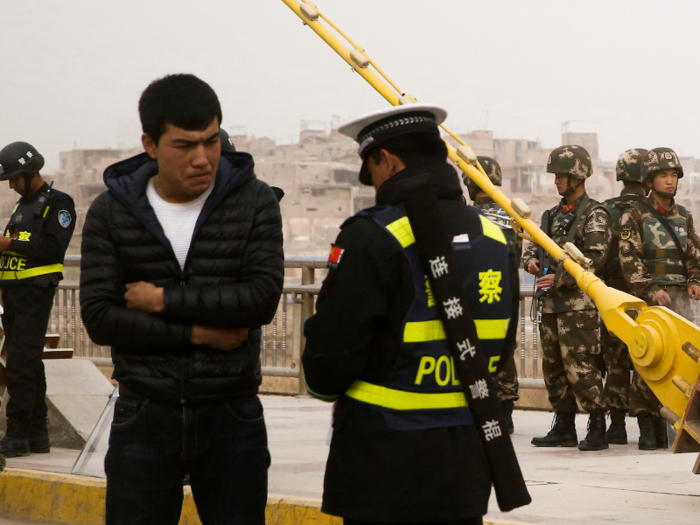
Armed police and paramilitary forces in Xinjiang, a territory in western China inhabited by the Uighur minority, stop random pedestrians to check their phones and laptops for banned apps and messages deemed dangerous to the Chinese Communist Party, BuzzFeed News reported.
This method of searching has already led to multiple Uighurs being detained and arrested.
9. Tracking people's social media posts, which can be linked to the user's family and location.
A woman in Wuyi, eastern China, received a call from the police hours after her son, Shawn Zhang, retweeted an anti-Xi Jinping post from his Weibo account in March — even though he was based all the way in Vancouver.
Police told Zhang's mother that the post was not good and requested that it be removed immediately, Zhang told BI.
How police managed to find Zhang's posts or trace his account to his mother's address remains unknown. Zhang said: "My social media account is probably under their close monitoring. They will read everything I say... I am probably on their watch list."
10. Building predictive software to aggregate data about people — without their knowledge — and flag those they consider threatening.
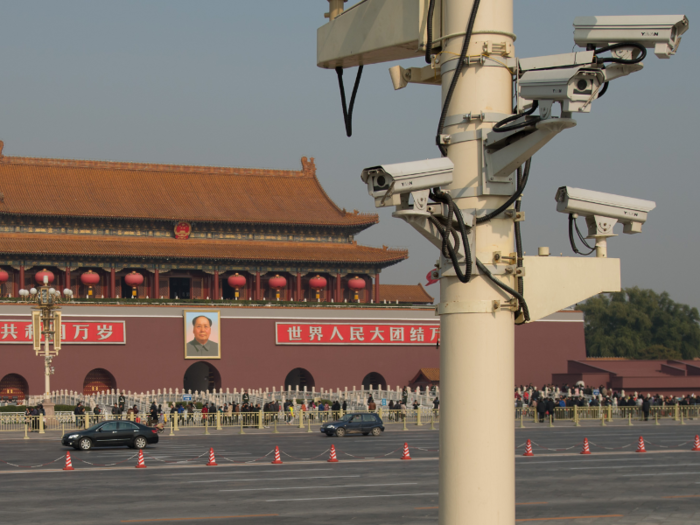
The software gathers the data from CCTV cameras, ID checks, and "wifi sniffers" — tools that intercept wireless networks, and hoover up and decode the data transmitted through them, according to Human Rights Watch.
The central system, also known as the "Integrated Joint Operations Platform" (IJOP), then analyses people's profiles, predicts whether they could harm the Chinese Communist regime, and alerts local authorities to potential rebels.
This effectively allows Chinese authorities to arbitrarily detain people they see as political dissidents, Human Rights Watch senior China researcher Maya Wang said.
Kashgar prefecture in Xinjiang, which is predominantly occupied by ethnic Uighurs, already uses IJOP regularly.
Facial technology and digital data collection is used much more liberally in China than elsewhere in the world. The EU, by comparison, is rolling out new data privacy regulation that would restrict the amount of personal, biometric, and social media data that companies can collect.
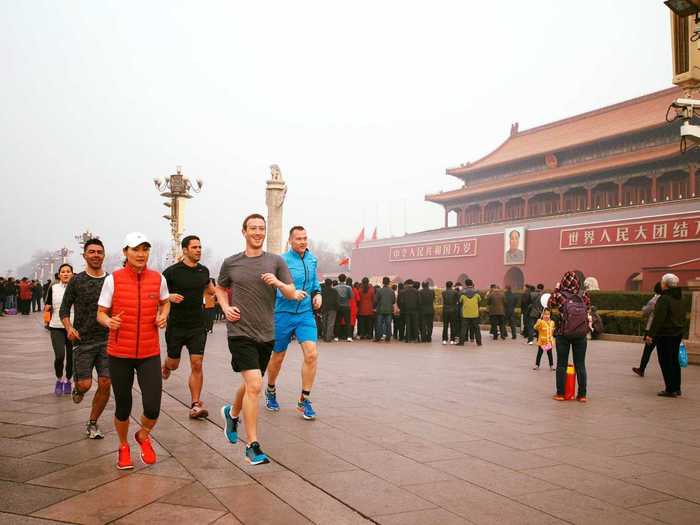
People in the country are split over how they feel about this modern surveillance state. While some have pointed out the violation of consumers' and citizens' rights, others say they feel safe because of the government's "Big Brother"-esque surveillance.

SenseTime, the Chinese AI company, told Quartz that it helped many companies combat identity theft by matching a person's face to government databases.
The Chongqing Institute of Green and Intelligent Technology, which developed facial recognition systems for 62 airports around the country, also claimed that it had already massively sped up security checks for hundreds of travellers.
Source: Human Rights Watch, BuzzFeed News
Popular Right Now
Popular Keywords
Advertisement